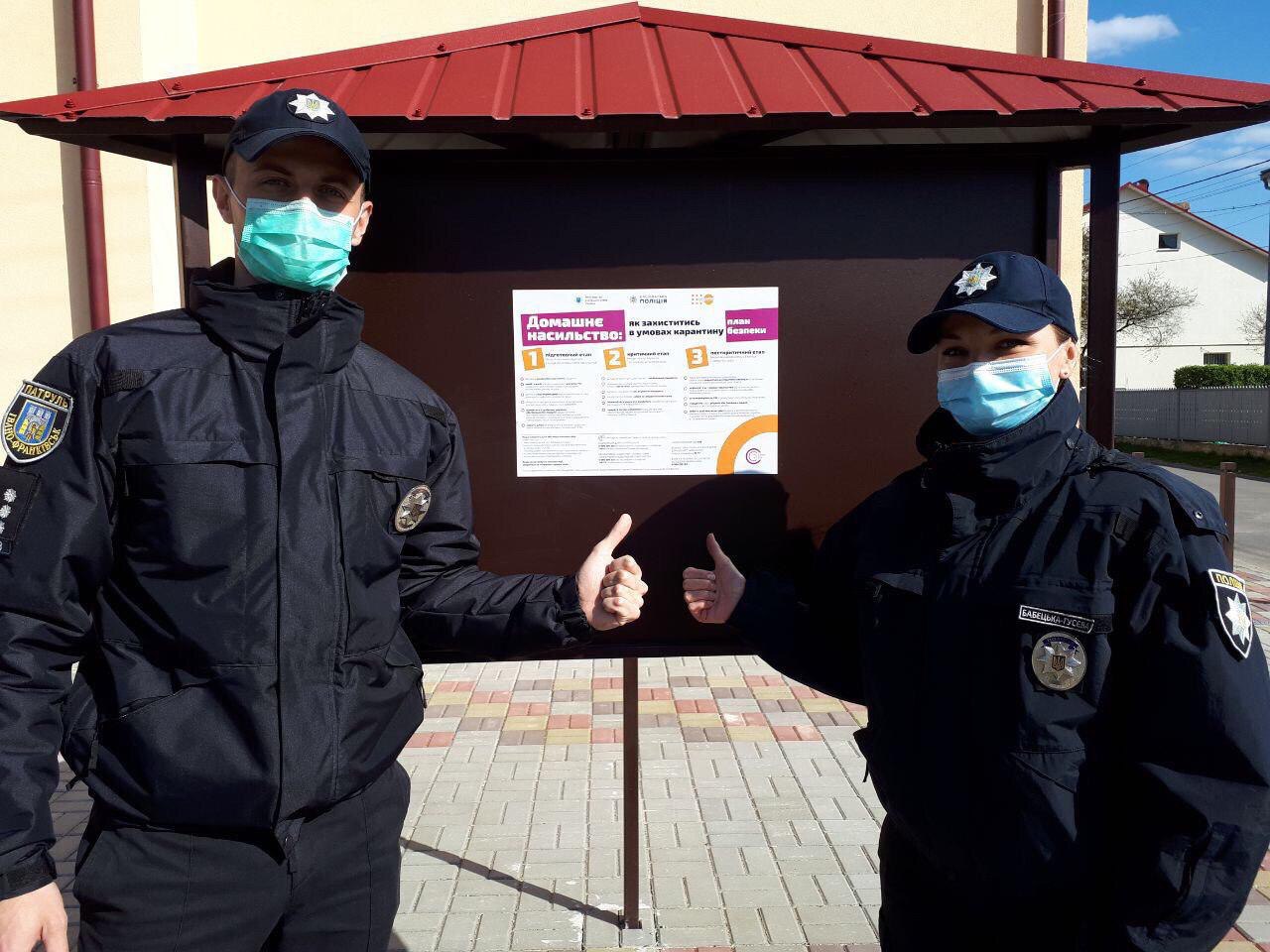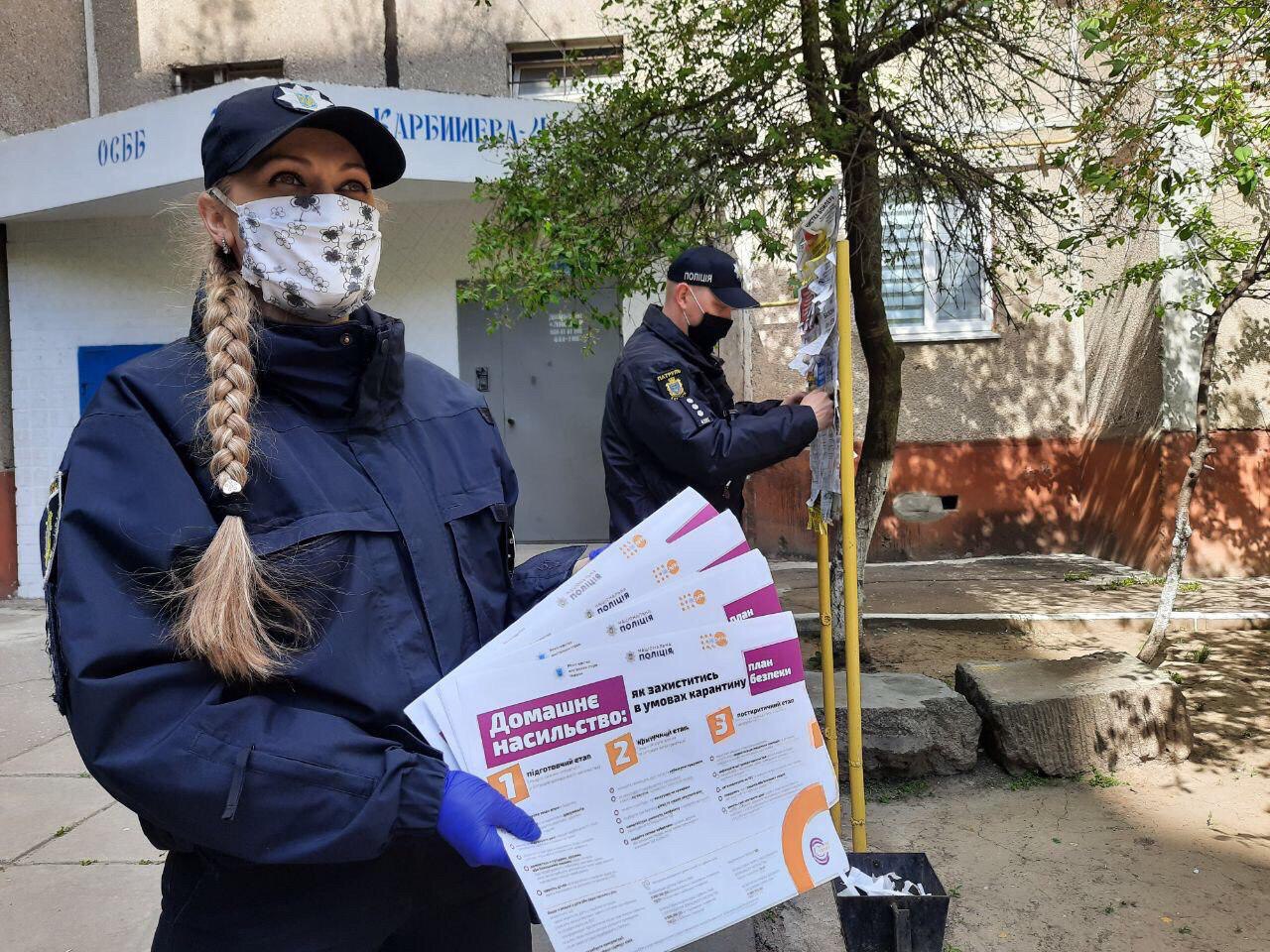After another altercation and beating, Svitlana* realized that it cannot last anymore. A resident of Mykolaiv had been suffering from physical abuse from her civil partner Oleksandr* for a long time and after all, decided to break these toxic relations last October. However, this terrible story hasn't been over. Although their relationship was not officially registered, Alexander did not take the news of the breakup and began threatening the woman with murder. Due to psychological harassment and intimidation, Svitlana appealed to the court to forbid her ex-boyfriend to contact her in any way. In February, the court granted the woman's request and issued a restraining order to Oleksandr.
Similar situations are not rare in Ukraine. 102 line receives approximately 1600 calls about domestic violence in a day. According to the National Hotline on Domestic violence combatting, supported by UNFPA in Ukraine, the number of calls doubled amid the quarantine period. However, according to the Ministry of Internal Affairs, there has been no significant increase in appeals as of April 24.

Kateryna Pavlichenko, a Deputy Minister of Internal Affairs says that the statistics of the Ministry of Internal Affairs and public organizations should not be compared.
“When people call 102, they call the police. If they call the hotline, they try to get counseling and psychological support. It is important to distinguish between these points. Police and hotlines provide different functions, have different powers within the same problem of domestic violence. I can invoke the statistics that 102 line has. I cannot affirm that it provides the complete picture of the situation on domestic violence in Ukraine, because this issue is somewhat closed, not every case is reported,” says Kateryna Pavlichenko.
Thus, according to the Ministry of Internal Affairs, line 102 got 17,999 calls on domestic violence from March 1 to March 11, which makes up an average of 1,636 calls a day. Between March 12 and March 31, there were 30,746 calls, which is an average of 1,537 calls a day. From April 1 to April 23 there were 37,251 calls, which is an average of 1,619 calls a day.
According to Kateryna Pavlichenko, there are minor spikes in domestic violence cases that occur on the weekend, pre-holiday days, and holidays. In March, for example, this happened during weekends on the occasion of International Women's Day and Easter.
The number of appeals for help has increased rapidly with the introduction of criminal responsibility for domestic violence in Ukraine and the improvement of legislation on prevention violence. Thus, if to compare the period from January to April this year and a similar period last year, the Ministry notes a 26 % increase of calls to line 102, says Kateryna.
“It was a turning point in Ukraine when the new legislation on violence prevention came into force. It gave new opportunities for countering the issue. Large-scale media campaigns run by the Ministry of Internal Affairs as well as our partners play a significant role in it. Another important aspect is increasing trust in the police,” tells us Kateryna Pavlichenko, Deputy Minister of Internal Affairs.
Mobile police teams, operating in all regionally important cities of Ukraine, as well as in Kramatorsk, Bila Tserkva, and Berdyansk, respond to domestic violence cases. These mobile police groups on domestic and gender-based violence response were launched with the support of UNFPA as a pilot project ‘POLINA’ (Police against violence) in 2017 in the amount of three groups and were expanded to 45 groups in 2019. Today they consist of preventive officers, precinct and patrol officers, and juvenile prevention officers. All of them undergo selection and special training. If necessary, they are empowered to issue an immediate restraining order to the aggressor, which prohibits any contact with the victim. After the start of regular work (September 2019), mobile police groups made 44379 visits in response to domestic violence reporting calls. But, as Kateryna Pavlichenko notes, not only mobile groups react to domestic violence cases in Ukraine: other police units (patrol police, patrol police groups, community police officers) respond to such cases in places without these groups. The quarantine has not affected the law enforcement officers’ work.
Media campaigns are one of the important aspects of the Ministry's work on combating domestic violence, especially amid quarantine restrictions, when the victim is forced to stay with the abuser in the same territory. As such circumstances complicate the possibility to appeal for help, the Interior Ministry has launched a Telegram chatbot “Take Action Against Violence”.
The main purpose of the chatbot is to inform the population about what violence constitutes, its main types, and chatbot also gives answers to the most common questions. It provides the opportunity to communicate with state legal aid workers online. When needed, they transfer information to law enforcement agencies about the demand to call police at a specific address. Also, according to Kateryna, the chatbot allows accumulating all the useful contacts in the case of domestic violence in one place.
‘It contains contacts of line 102, hotlines; in the near future we will fill it with contacts of social services, we also plan to add regional contacts as well," says the Deputy Minister.

According to Kateryna Pavlichenko, there is an interesting tendency that a big number of teenagers turn to the chatbot.
“Despite the fact that middle-aged people use Telegram mostly, we could track the tendency of teenagers’ appeals. They report their concerns, ask for legal advice, talk about quarrels between parents,” tells us Kateryna Pavlichenko.
Moreover, National Police officers distribute 100,000 developed security plans to all Ukrainian regions with the support of the United Nations Population Fund as part of the ‘Break the Circle’ campaign. The security plan provides information on how to protect yourself from acts of violence at various stages: if there is a risk of violence, when the situation is already exacerbated, and how to act at the post-critical stage.
“UNFPA Ukraine is one of our regular partners. We are always thankful for its help and support. Currently, we are working on the creation of three animated videos, aimed to inform the population, — says Kateryna Pavlichenko. — As you can see, awareness-raising in society is our aim, because the conscious public attitude towards gender stereotypes and domestic violence can save someone's life. Making zero tolerance for domestic violence is our goal. We must prevent domestic violence during such a difficult time for our country and the whole world as well.”
“UNFPA Ukraine continues doing its work during global coronavirus pandemic so that victims of domestic violence are not left alone with the problem,” says UNFPA GBV programme manager, Olesiia Kompaniiets. Hotlines, daycare centers, and shelters, mobile police groups continue to operate, providing assistance in cases of violence and helping to prevent new ones. All staff is provided with protective equipment. The National Hotline on domestic violence combatting continues to provide 24/7 consultations not only by phone but also by online-messengers.
*Names changed to for privacy and protection


